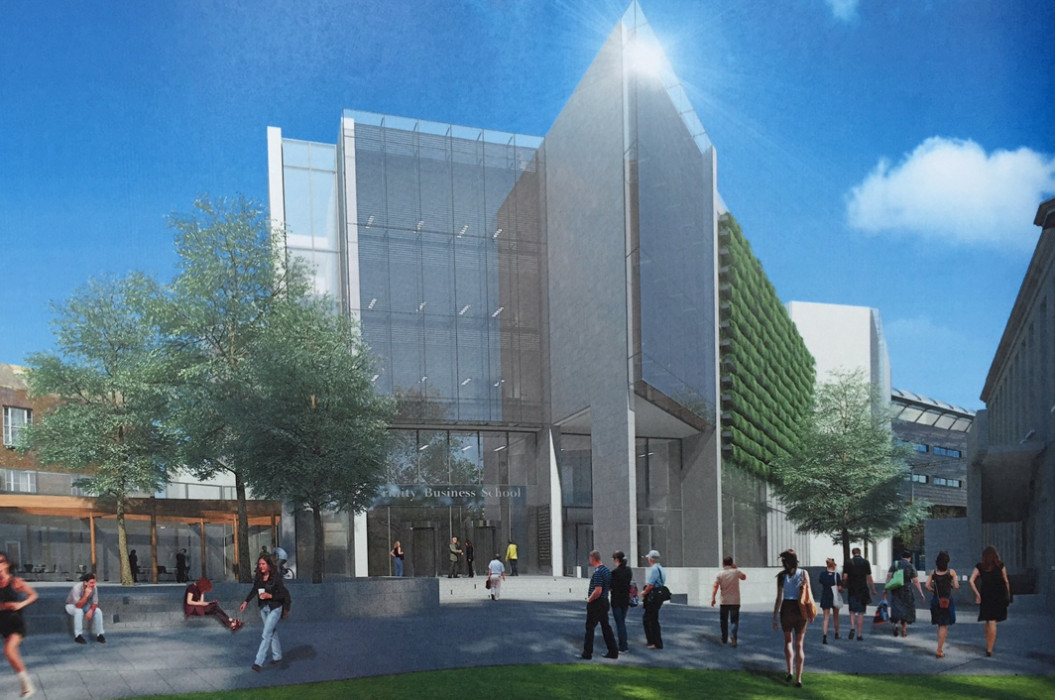Trinity’s plans to build its new business school will cost €12.5 million more than anticipated. This increase, largely due to market pressures driving up construction costs and IT costs, will bring the overall cost of the development from €70 million to €82.5 million.
At a meeting of the College Board in June, project sponsor, Prof Gerard Lacey, outlined an updated plan for the development, informing members that market pressures have led to marked increases in construction and IT costs since the project was first announced in 2013. Lacey also explained that uncertainty remained over the cost of the demolition of the Simon Perry Building.
In an email statement to The University Times, Lacey emphasised that this increase was always a possibility, noting that “building contracts are not fixed and additional costs do occur”.
However, a variety of funding options are being explored by the College in order to bear the cost of this increase. Trinity’s Chief Financial Officer, Ian Matthews, expressed confidence at that meeting of Board that the extra funding could be raised from philanthropic donations and commercialisation opportunities. Lacey added that “the increase in the funding envelope has been assisted by very generous donations from alumni and other supporters”.
Despite these reassurances, the scale of the increase has prompted the College to reassess the cost of other capital investment projects that feature in its €295 million capital investment strategy, outlined in Trinity’s 2014-2019 Strategic Plan.
Plans for the construction of the new business school were announced in November 2013, with a proposed completion date in 2017. However, the rejection of the original plans by Dublin City Council in 2015, who criticised certain architectural features of the building as unsuitable, delayed the project by 18 months at an estimated cost of €150,000 per month. However, these costs are expected to stay within the original €70 million budget.
The development is now expected to be completed in 2018, after the final designs were approved by Dublin City Council in August of last year. The six-storey building will house a 600-seat auditorium and a 140-seat lecture theatre. The building will also feature a number of smaller classrooms, a roof garden and a dedicated entrepreneurship and innovation hub, which will house the undergraduate business incubator programme Launchbox.
The adjacent Pearse St buildings will be refurbished to provide student accommodation, providing an additional 24 beds. Construction has begun already and is currently taking on the site of the now-demolished Luce Hall.
The Simon Perry Building, which houses some functions of the Department of Civil and Environmental Engineering, will also be demolished in the near future. Trinity’s new Engineering, Energy and Environmental Institute (E3) will incorporate some of the functions of the building and will house computer science, natural sciences and engineering students.
Writing in The University Timesthis week, the Provost, Patrick Prendergast, said the new campus will “put Ireland at the forefront of research and education that will forge the solutions to some of the world’s most pressing problems”.







